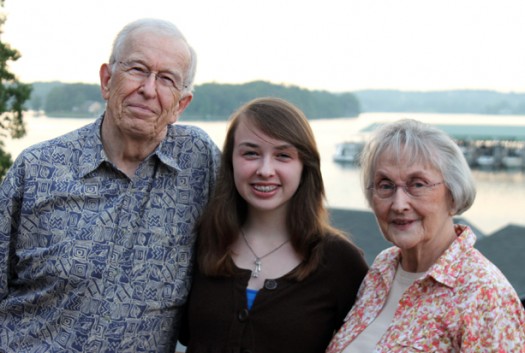A Placemaking Journal
Going Green: What is it you really want?
Last week I spent some time in the mountains of southern Virginia visiting my folks. That’s something I not only enjoy but find productive as well, as it affords me opportunity to further explain exactly what it is I do for a living.
For some reason, “telling the story of community placemaking” still leaves them scratching their heads.
No worries. Over the years I’ve found it effective to wait for an in — spending time talking about things of interest to them, then seizing serendipitous moments to tie the subject at hand back to something I’m working on.
One topic that comes up often is the environment and the options available to individuals to contribute to the relative health and sustainability of the planet.
This is something they’re pretty serious about and it’s reflected in their ongoing domestic choices — the systems and appliances they buy, the foods they eat, how they manage their trash and, perhaps above all else, the cars they drive.
Dad’s a hybrid man.
A little context: As I’ve written before, I’m originally from the suburbs outside Washington, DC, and my parents are still chugging away in the same house where I grew up. Their home for over 50 years now, it literally encapsulates their married life.
That house has a Walk Score of 42, which might be workable for crows taking the straight line route to surrounding amenities but, with the circuitous paths of their subdivision that actually form the physical connections, it’s a little much on foot. For folks getting up there in age, even more so.
Which is all to say that, at this point, they’re effectively auto-dependent, which is why Dad wants to do the best he can with the choices he sees as available. And from his perspective, given his concerns over carbon emissions and dependence on foreign energy, hybrid vehicles are a good way to do that.

Where things get interesting is when talk turns to the future success of electric/hybrid vehicles and other green-minded endeavors. It’s then that I can sense just a little annoyance on his part — perhaps not even a conscious consideration — that not everyone shares his concern over environmental issues or prioritizes them in their purchase decisions. And that’s when I find my in, asking him a question that brings the conversation back around to something I deal with regularly.
“What’s more important to you?” I ask. “That more people share your worldview or that more people contribute to the well-being of the planet?”
The guy’s no slouch, so it doesn’t surprise me when he admits that, at the end of the day, he’s most concerned with more people going green. Which leads to my point: Who cares what people’s motivations are if their actions prove beneficial beyond themselves?
Selling is Selling
People make purchase decisions for all kinds of reasons. Money. Health. Safety. Hipness. Prestige. Self-image. And yes, for some, good ole Mother Earth. But more often than not, the driver is self-interest or, casting a slightly wider net, interests that hit fairly close to home.
In short, a lot of the time, the fate of the planet doesn’t rate all that high. But right now, at this early and awkward stage of changing consumer behaviors for the long haul, does that really matter?
Consider this admittedly not-so-new article, which details the purchase drivers behind some of our most visible green-minded products. For example:
For Tesla Motors, the key driver of preference is raw power — their roadster will smoke a Ferrari in a stealthy, silent burst off the line. For Ben & Jerry’s, it’s the taste of their wild concoctions and the evocative flavor names. For Rent-a-Green Box and for Terracycle plant food, the drivers of preference turn out to be price and performance, which are classic drivers of consumer choice.
Circling back to Seventh Generation, it turns out that home safety is a driver of consumer preference that did not go unnoticed by one of their mainstream competitors. Two years ago, Clorox launched their Green Works line partially in response to growing anxiety about the safety of chlorine in the home.
Further detailed in the article is the case of Southwest Windpower, who found that environmentalism and energy security were drivers for just a small percentage of their customers. More common for those buying turbines were the prospect of saving money, demonstrating an independent spirit, or flat out stickin’ it to the utility companies.
In that same vein, we spent a number of years doing brand marketing work for one of the Southeast’s most acclaimed and accomplished green homebuilders. All of their homes were built to the regionally-prevalent Earthcraft environmental standard, which added a premium to their price. But when it came time to sell them, countering the buyer objections such premiums often invite, we didn’t typically appeal to environmental sensitivities. More often than not, we sold on the basis of reduced utility bills, as well as indoor air quality and its impact on childhood respiratory issues.
Find the Motivation
If your goal is bringing people around to your point of view, helping them see the light and finally get it, I’ve got some bad news: Expect limited results. But if your goal is more people demanding more green products and participating in more green behaviors, then things are looking up. Just consider what you’re selling through the less ideologically-pristine lens of self-interest. Assuming you’ve got a quality product that actually delivers as promised, you’ll be amazed at just how much overlap exists between things that are good for me and things that are good for we.
–Scott Doyon
If PlaceShakers is our soapbox, our Facebook page is where we step down, grab a drink and enjoy a little conversation. Looking for a heads-up on the latest community-building news and perspective from around the web? Click through and “Like” us and we’ll keep you in the loop.









